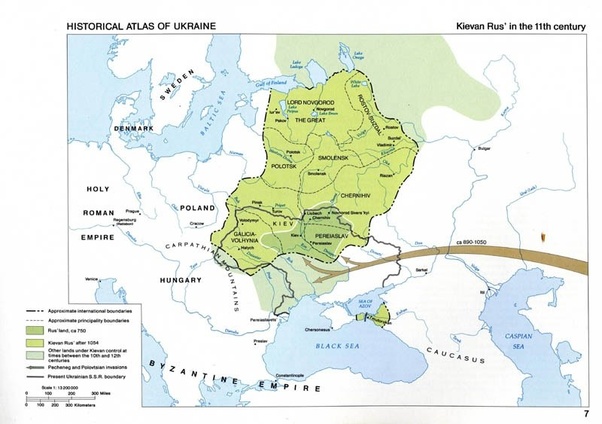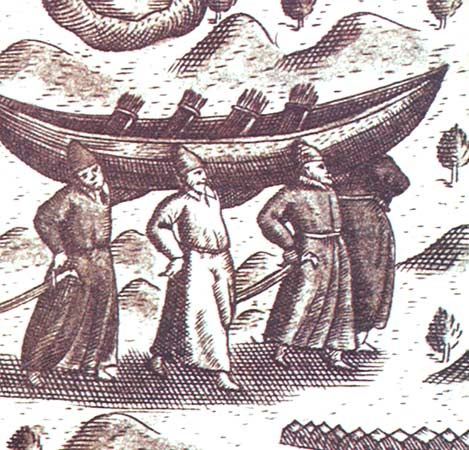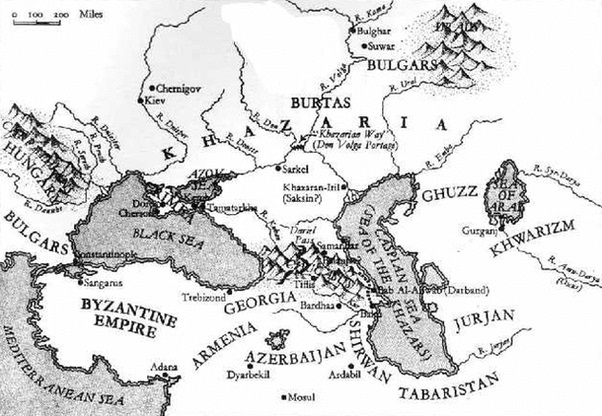My lure worked, you’re now officially a sexist pig.
omg I’m so sure! I was talking about trust, dude. You can put trust in a woman.
Hahaha. Well ok a leftie after all, rather wrong than being accused of sexism.
A very nice lecture by Dimitris Almyrantis
Did Turks ever fight with Vikings or Scandinavians throughout history?
"Yes, and on a large scale. Though “Viking” is the Western name for the Norsemen, and associated with their raids on the coasts of northern Europe, they were as or more focused on the east, where they were called “Varangians” or “Rus’” - the origin of the name of modern Russians, whose country originally took shape as a land of mostly Slavic tribes ruled by a Rus’/Viking elite from their fortified garð forts/cities along major rivers, reaching from the Baltic to the Black Seas. The core of the Rus’ empire - basically a militarized trade enterprise - was to control the river-based trade between the Romans, the Persians, the Chinese and the Scandinavians/Europeans, making them fantastically rich. Thanks to this Eurasian trade, silver dirhams from the Islamic mints of Central Asia formed the most stable currency of the Baltics and Scandinavian trading ports, and even English kings patterned their currency after the caliph’s.
The Rus’ empire with its centre in Kiev lasted from the 9th to the 13th century, though the ruling Norsemen were Slavified in the process. The cultural succession to these is a point of contention between Russia and the Ukraine - which latter occupies the heartland of what was called “little [=inner] Russia”; Belarus is part of its legacy, too."

“These Nordic traders were routinely threatened in their trade from the nomadic Turks who lived in the steppes adjoining the rivers - ancestors of the people now called “Tartars”, living within the Russian Federation. The most hotly contested point was the “Volga Portage”, the 70km span of solid land between the river Don (which empties on the Sea of Azov and the Black Sea) and the river Volga (which empties into the Caspian): Norsemen had to disembark from their shallow-keeled longships and carry them on their shoulders, often running the distance between the rivers - a dangerous process leaving them open to attack by the Turks who wanted to get their cargo.”
16th c. Russian fishermen, crossing the Volga portage much as their ancestors did 900 years before them.

"Now the greatest Turkish power on the Pontic-Caspian Steppe, which had emerged in the 7th century and lasted until the 10th, was the Khaganate of the Khazars, a tribe that emerged as dominant in the region after the breakup of the old “Blue/Celestial” Turkish khaganate reaching from Europe to China; these Khazars are mostly remembered in modern historiography for their conversion to Judaism sometime in the 8th century, making them perhaps the only major Jewish empire in history. At their peak, the Khazars were a major power dominating the western Eurasian steppe, and held many nations along the forests to their north and the eastern boundary of Europe as tribute-paying subjects, defeating many nomadic rivals - often sending the defeated fleeing for shelter in Europe, where they displaced and ruined the region much as the earlier barbarian invasions had done. The older Khazar empire and the newly emergent Rus’ were in direct competition for the riverine trade and hegemony over the southeastern Slavic lands: making for a large-scale war between a Viking-Slavic empire and the major Turkish power of the age, ending in the latter’s defeat.
The Khazar capital lay on Itil in the lower Volga (‘Itil’ or Atil being the Turkic name of the river), and their heartland in the Caucasian steppe to the south, though their empire reached from the Crimea to the Urals, and perhaps further. They were ruled by a dual kingship, with a sacred or ceremonial monarch, the Qaghan acting as an elected religious figurehead with a fixed term and a chieftain called the Qaghan bek acting as actual military and political leader, always showing great deference to the Qaghan. Another interesting institution was the maintenance of a guard of Moslem Khwarizmians (see map below) as the personal royal guard, acting as a semi-autonomous tribe of great importance in Khazar politics, with their own formal treaty with the Khazars outlining that they would not be made to fight fellow Moslems. In one case, these Khwarizmians broke ranks and massacred a group of Norsemen the Khazars had let through the portage, presumably to raid Islamic lands.
This empire acted as a “third power” between Christianity and Islam in its time, but mostly allied to the Romans, and engaged in extensive warfare with the Arabs on both sides of the Caucasian mountains - the Khazar raids were often seen by the Arabs and Persians as a forerunner of the end times, which were to be heralded by the descent of the demonic peoples of the north (Gog & Magog), who were sealed beyond a wall of iron at the end of the world by Alexander the Great, the Lord of Two Horns. Islamic writers, who are our primary sources for the period, are very influenced by these eschatological themes when speaking of the Khazars."
